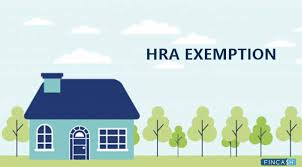What Is the HRA Calculator?
The HRA Calculator is a tool used to determine the House Rent Allowance (HRA) that an individual is eligible to receive based on their salary package and the expenses incurred for renting a house. It assists in estimating the portion of an employee’s salary that is exempt from income tax under the HRA component.
Table of Contents
This calculator takes into account various factors such as the individual’s salary, the amount of rent paid, and the location of the rented accommodation. It uses a specified formula to compute the HRA amount, ensuring that it complies with the rules and regulations set forth by the tax authorities.
By using the HRA Calculator, individuals can gain a clearer understanding of the tax benefits they can avail of through HRA, allowing them to make informed decisions regarding their housing choices and financial planning. This tool is especially valuable for salaried employees looking to optimize their earnings and minimize their taxable income legally and efficiently.
The House Rent Allowance (HRA) is a significant component of an employee’s salary, designed to help individuals cope with the ever-rising costs of housing. To make the most of your HRA, it’s essential to understand how it works and to ensure you’re taking full advantage of the benefits it offers. In this article, we’ll delve into the world of HRA, discussing how to calculate it, who is eligible, who decides it, and its broader economic implications.

Meaning Of House Rent Allowance
House Rent Allowance (HRA) is an allowance provided by employers to employees as a component of their salary. It is given to assist employees in meeting the expenses of renting
residential accommodation. HRA is particularly relevant in urban areas where owning a house may be expensive or impractical for many individuals.
HRA is a financial benefit that can help employees manage the costs associated with renting a house. It is typically a fixed percentage of the employee’s salary and is paid on a regular basis, often monthly. The amount of HRA an employee receives can vary depending on factors such as the employee’s salary level, the city in which they reside (as different cities have different living costs), and the actual rent they pay.
One significant aspect of HRA is its tax implications. A portion of the HRA received by an employee is exempt from income tax, as long as the individual meets certain criteria and provides the necessary documents (such as rent receipts and details of the rented accommodation). This tax benefit can lead to significant savings for employees, making HRA an essential part of their overall compensation package.
Overall, House Rent Allowance plays a crucial role in providing financial relief to employees and enabling them to secure suitable accommodation, especially in high-cost urban areas.

Benefits of the HRA Calculator
- Financial Relief: HRA provides financial relief to employees by subsidizing their rental expenses. This is especially valuable in today’s increasingly expensive real estate market.
- Tax Benefits: One of the most significant advantages of HRA is its tax benefits. A portion of the HRA is exempt from income tax, which reduces an employee’s taxable income.
- Increased Savings: By utilizing HRA effectively, individuals can allocate more of their income towards savings or other investments, further securing their financial future.
- Budgetary Flexibility: HRA allows individuals the flexibility to choose housing that best suits their needs and preferences, rather than compromising due to budget constraints.
- Lifestyle Enhancement: Having access to HRA can lead to improved living standards, as it enables individuals to opt for better quality housing in desirable locations.
Who is Eligible to Avail House Rent Allowance in 2023
HRA eligibility is determined by various factors, including your employment status, location, and the rent you pay. Here are the key criteria for eligibility in 2023:
- Salaried Individuals: Most salaried individuals are eligible for HRA. Your employer should provide you with an HRA component in your salary package.
- Rental Expense: To claim HRA benefits, you must be living in a rented house. You must also be paying rent to a landlord, which can be a family member, as long as there is a legitimate landlord-tenant relationship.
- City of Residence: The HRA calculation depends on the city in which you live. The government classifies cities into different categories, and the HRA you receive is determined based on these classifications. Metropolitan cities generally have higher HRA rates.
- Salary Component: Your eligibility and the amount of HRA you receive also depend on your salary package and the percentage allocated to HRA.
- PAN Details of Landlord: If your annual rent exceeds Rs. 1,00,000, you must provide your landlord’s PAN details to claim HRA tax benefits.

Who Decides HRA in the Indian Economy?
In the Indian economy, the determination of House Rent Allowance (HRA) primarily rests with the employer. It is the employer’s responsibility to decide and allocate the HRA component in an employee’s salary package. This decision is typically based on various factors, including the company’s policies, the employee’s salary level, and prevailing industry standards.
Employers may have specific guidelines and criteria for calculating HRA. These guidelines often take into consideration factors such as the employee’s salary, the location of the rented accommodation, and the percentage of the salary designated for HRA.
Additionally, the government of India provides guidelines and classifications for different cities, which influence the calculation of HRA. Cities are categorized based on their cost of living, with metropolitan areas generally having higher HRA rates due to the higher expenses associated with renting accommodation in these locations.
Ultimately, while the government sets general guidelines and classifications, it is up to individual employers to determine the specific HRA component for their employees, ensuring compliance with both legal requirements and company policies.
How House Rent Allowance is Beneficial for the Economy?
House Rent Allowance has broader economic implications, affecting both individuals and the economy as a whole.
- Boost to Real Estate: HRA can stimulate the real estate sector by increasing the demand for rental properties, which in turn can drive construction and property development.
- Tax Revenue Generation: As a part of HRA is exempt from income tax, it reduces the tax liability of individuals. However, it still contributes to the government’s overall tax revenue, thus benefiting the economy.
- Improved Standard of Living: Access to HRA enables employees to afford better housing and, in many cases, invest in properties, thereby contributing to the growth of the housing sector.
- Rental Market Growth: The rental market thrives due to HRA, and more landlords are encouraged to rent out their properties, which can help address housing shortages in urban areas.
- Economic Stability: By reducing the financial burden on individuals, HRA contributes to overall economic stability. It allows people to allocate more of their income toward spending and investments, supporting economic growth.
- Employment Incentive: HRA can serve as an incentive for people to accept job offers in cities with high living costs, thus encouraging labor mobility and contributing to economic diversification.
How To Use HRA Calculator?
Using an HRA (House Rent Allowance) calculator is a straightforward process that can help you estimate the amount of HRA exemption you can claim for tax purposes. Here’s a step-by-step guide on how to use an HRA calculator:
- Gather Necessary Information:
- Before you start using the HRA calculator, make sure you have the following information handy:
- Your basic salary
- The amount of HRA received from your employer
- Rent paid for your accommodation
- City of residence (classified based on population)
- Any rent receipts or agreements with your landlord
- Before you start using the HRA calculator, make sure you have the following information handy:
- Select Your City of Residence:
- The HRA exemption calculation depends on the city in which you reside. The government classifies cities into different categories, and the HRA rates are determined based on these classifications. Generally, metropolitan cities have higher HRA rates.
- Enter Basic Salary:
- Input your basic salary into the designated field. This is the portion of your salary that does not include allowances or bonuses.
- Enter HRA Received:
- Enter the amount of HRA received from your employer. This is the actual amount of HRA that is part of your salary package.
- Provide Rent Details:
- Enter the total amount of rent you pay for your accommodation. This includes the base rent and any additional charges like maintenance or parking fees.
- Submit Supporting Documents (if required):
- If your annual rent exceeds Rs. 1,00,000, you may need to provide your landlord’s PAN (Permanent Account Number) details to claim HRA tax benefits. Some HRA calculators may have a provision for entering this information.
- Calculate:
- Once you’ve entered all the necessary details, click on the “Calculate” button or similar option provided by the HRA calculator.
The formula for House Rent Allowance
The House Rent Allowance (HRA) exemption is calculated using the least of the following three amounts:
- Actual HRA received from your employer.
- 50% of your basic salary if you live in a metro city (or 40% if you live in a non-metro city).
- Actual rent paid minus 10% of your basic salary.
Mathematically, this can be expressed as:
HRA Exemption = min(A, B, C)
Where:
- A = Actual HRA Received
- B = 50% of Basic Salary (for metro cities) or 40% of Basic Salary (for non-metro cities)
- C = Actual Rent Paid – 10% of Basic Salary
Remember, the calculations for HRA can be a bit complex due to different factors like the city of residence, actual rent paid, and basic salary. It’s advisable to consult with a tax advisor or use an HRA calculator to ensure accurate and optimized results.
https://incometaxindia.gov.in/Pages/tools/house-rent-allowance-calculator.aspx
Let’s go through a hypothetical example to illustrate how the House Rent Allowance (HRA) exemption is calculated.
Assumptions:
- Employee’s Basic Salary: Rs. 50,000 per month
- Actual HRA Received: Rs. 20,000 per month
- Rent Paid for Accommodation: Rs. 15,000 per month
- City of Residence: Mumbai (classified as a metro city)
- PAN details of landlord provided (if required)
Now, let’s break down the calculation step by step:
- Calculate 50% of Basic Salary:
- In a metro city like Mumbai, the HRA exemption is calculated as 50% of the basic salary.
- Calculate Actual Rent Paid minus 10% of Basic Salary:
- This is the difference between the actual rent paid and 10% of the basic salary.
- Determine the Least of the Three Amounts:
- Compare the three values calculated above (Actual HRA Received, 50% of Basic Salary, and Actual Rent Paid minus 10% of Basic Salary), and choose the least of them.
- HRA Exemption:
- The HRA exemption is the least of the three amounts. In this case, it’s Rs. 10,000.
This means that the employee can claim an HRA exemption of Rs. 10,000, and the remaining HRA amount of Rs. 10,000 (Rs. 20,000 – Rs. 10,000) will be taxable.
Remember, if the actual rent paid is lower than 10% of the basic salary, the exemption will be limited to the actual rent paid minus 10% of the basic salary. If the actual rent paid is higher, the exemption will be calculated using 50% of the basic salary.
Additionally, if your annual rent exceeds Rs. 1,00,000, you may need to provide your landlord’s PAN details to claim HRA tax benefits.
Conclusion
House Rent Allowance is a crucial element of an employee’s compensation package, providing financial relief, tax benefits, and an improved standard of living. Eligibility for HRA is contingent on factors such as rental expenses, location, and salary, and it is ultimately determined by the employer. The concept of HRA in India has a long history, dating back to the Income Tax Act of 1961, and it has evolved to adapt to changing economic conditions.
Moreover, HRA has a significant impact on the economy. It promotes real estate development, generates tax revenue, improves living standards, and supports economic stability. In a rapidly urbanizing world, HRA plays a vital role in balancing the financial well-being of employees while contributing to the overall economic health of the nation.
Understanding the intricacies of HRA and optimizing its benefits can have a substantial impact on an individual’s financial security. By staying informed about HRA regulations and making the most of the tax benefits, employees can enjoy a higher quality of life while making wise investments for their future. As the economic landscape continues to evolve, HRA remains a reliable means of managing housing expenses and achieving financial stability.

